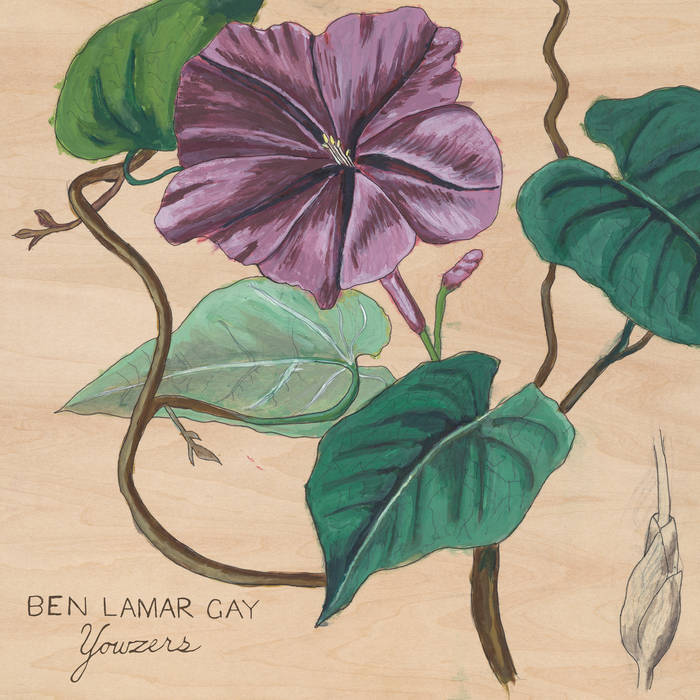The music of Ben LaMar Gay is sublimely ephemeral, as if made elusive by design – meant to be absorbed in the dynamic now of physical spaces rather than enjoyed in stasis via recordings. The Chicago cornettist’s 2018 debut Downtown Castles Can Never Block The Sun suggested as much. Ostensibly a greatest hits compilation, the album collected a disparate canon of pieces that had previously escaped capture, but still appeared constrained by the format. Seven years and two studio albums later, Gay feels more comfortable in the role of a traditional recording artist; yet, the tracks presented on Yowzers remain just as eager to escape into communal spaces as his earlier works.
The malleability of the shared musical experiences that seem to fuel Gay’s creativity extends beyond the fleeting, ever-changing nature of his compositions. It frees his artistic voice, allowing him to collect influences from all corners of the world like a rolling katamari ball, from jazz and blues to Tropicália and samba. Even calling Gay a cornettist, then, feels somewhat of a reduction, as he lets the music dictate the form it takes and the instruments it needs.
On the title track, we hear Gay invoke a blues to climate change, layering urgent words over a simple piano chord, while a choir comprised of vocalists Ayanna Woods, Tramaine Parker, and Ugochi Nwaogwugwu responds in simultaneously terrifying and gorgeous harmony: “Ain’t gon snow no more / Rain gon pour and pour / Fire don’t stop no more.”
In contrast to the intimate and carefully constructed opener, ‘the glorification of small victories’ features Gay’s quartet with Tommaso Moretti (drums, percussion, voice), Matthew Davis (tuba, piano, bells, voice), and Will Faber (guitar, ngoni, bells, voice) engaged in an energetic live performance at Chicago’s Palisade Studios. The cut comes to life on the back of a clattering of granulated percussion and swirling synths, only for Gay’s cornet to guide it to a space of irreverently improvised jazz and folk, discordant guitar licks tangling with the tuba’s trembling bellows.
Three other songs that were tracked live, ‘there, inside the morning glory’, ‘cumulus’, and ‘I am (bells)’, maintain the same level of intensity. ‘cumulus’ comes closest to what could be dubbed typical contemporary jazz – complete with bending, Mary Halvorson-esque fretwork from Faber. Meanwhile, ‘I am (bells)’ shifts patiently from Gay’s unaccompanied, soulful croon (“In the morning, when I’m alone”) to an ambient-like loop of bell rings which ultimately settle into the sort of pulsing, barely-there yet fleshy groove that The Necks like to construct.
Among the studio-built pieces, the bittersweet elegy ‘for Breezy’ dedicated to the late trumpeter jaimie branch wraps electric piano in the analogue warmth of vinyl crackle, swelling brass, and brushed drums. ‘John, John Henry’ adapts the traditional folk ballad to a contemporary context – the adversarial machine changes, but the song remains the same – by propelling a deceptively joyous gospel chorus with a rhythmic engine made of electrifying drum and synthesizer patterns. Meanwhile, ‘damn you cute’ and ‘touch’ collage anthemic passages and baubles of electronic effects to give the album some of its warmest, jubilant moments.
While the variety of styles and approaches on display is mesmerising if not dizzying, the cuts on Yowzers feel as if they truly belong together, connected by an intangible thread – a sensibility which eclipses pure aesthetics and bridges concepts, worlds, and compositions across boundaries. As Gay puts it, “These ideas, they want to be influenced so they can travel far. The story wants to be extended.”


